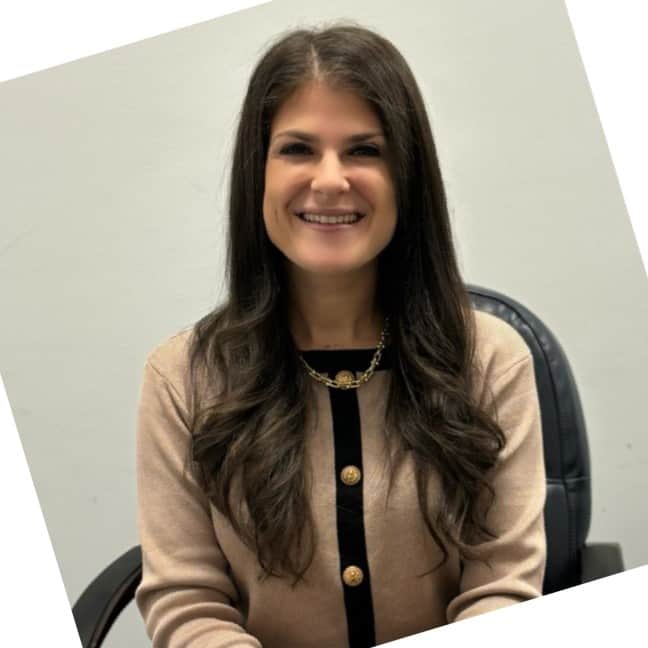Who Needs Pain Killer Rehab?
Sometimes, it’s challenging to recognize when prescription pain relievers have become a serious issue, and knowing when to seek support is essential. In the following situations, you should consider looking for professional help from a pain killer rehab:
Struggling to Stop Prolonged Opioid Use
If you’ve tried to reduce your intake or stop using painkillers altogether on your own and you find you’re unable to do so, it’s a sign that you should start to consider professional treatment centers. Having experts to turn to can make the process easier.
Experiencing Withdrawal Symptoms
If you start to experience physical or psychological withdrawal symptoms when you stop using painkillers, it’s a good idea to seek help from a medical detox center and then continue with further painkiller addiction treatment when you finish. While the withdrawal symptoms typically aren’t dangerous, they can be incredibly uncomfortable and painful, and often lead people to turn back to the drug once they start to feel symptoms.
Facing Health or Financial Problems Due to Painkiller Use
When prolonged use of prescription painkillers affects health and work performance or contributes to financial concerns, rehab can offer valuable support. Deciding to go to a pain killer rehab can prevent minor problems from becoming more significant.
Family or Friends Are Concerned About Your Drug Use
Sometimes, those closest to us can see a problem before we can see it ourselves. If family members have expressed concern or mentioned changes in your medication habits or behaviors, it could mean you’d benefit from talking with a professional.
You Are Doctor Shopping
Doctor shopping means visiting different doctors, hoping to get several prescriptions for the same medication. People typically doctor shop when they’re using more pills than their prescription allows or when their doctor won’t renew their prescription. Doctor shopping is a pretty strong sign that a person is struggling with drug dependence or opioid use disorder and may benefit from professional help.
No matter what your reason is for wanting to start addiction treatment at a pain killer rehab, we can help. Contact Right Path Recovery to learn more.
We’ve Helped Thousands of Individuals Overcome Drug and Alcohol Addiction
Commonly Abused Painkillers
Painkillers are highly addictive, and they carry a high risk of dependency or opioid use disorder, even when taken exactly as prescribed at first. Common ones include:
Oxycodone (OxyContin): Oxycodone is prescribed for serious pain management after an injury or surgery. While oxycodone can be helpful, it’s also highly addictive and can create a physical need to continue taking the medication to feel normal.
Hydrocodone (Vicodin): Hydrocodone medications are common prescriptions intended for moderate or severe pain, or following dental procedures. Many people accidentally become physically dependent on these medications over time because they may underestimate their addictive nature.
Codeine: Often used to alleviate mild to moderate pain, codeine is commonly prescribed to manage pain because people see it as less serious or less addictive. However, repeated use can still lead to painkiller addiction, causing physical and emotional side effects.
Morphine: Morphine is commonly prescribed to control acute or chronic pain. It offers strong pain relief but also quickly leads to tolerance, making some people take higher doses and end up dependent.
Knowing these medications’ potential risks can help individuals and families be extra careful and get help if problems with use become apparent.
Why Do People Get Addicted to Pain Killers?
People often start using painkillers to deal with pain after an injury or surgery, but taking prescribed opioids sometimes leads to painkiller addiction without them realizing it.
- Prescription medications can be addictive because people may start needing higher doses to relieve pain over time, causing physical dependence.
- Many people misuse opioids not to control pain but because they provide feelings of relaxation or temporary relief from stress or uncomfortable emotions.
- Untreated mental health issues can sometimes lead people to substance use disorders, including painkiller misuse.
If opioid use disorder becomes serious, it raises the chances of dangerous situations like drug overdose, which is a serious public health issue. According to the Substance Abuse and Mental Health Services Administration (SAMHSA), there were more than 100,000 opioid overdose deaths in 2022. Painkiller addiction requires support from addiction specialists and proper addiction treatment. [1]
Recovery Starts at Our Drug and Alcohol Rehab by Requesting a Call
"*" indicates required fields
Symptoms of Pain Killer Abuse
Recognizing common signs of painkiller and opioid abuse can be tricky because these medications often start out as legitimate attempts to manage acute pain or chronic pain. Common warning signs include:
- Taking more of the substance to feel normal
- Changes in mood or behavior – frequent mood swings related to long-term opioid use
- Withdrawing from friends and family
- Avoiding activities they once enjoyed
- Reduced sense of well-being
- Poor personal hygiene, focusing less on grooming or appearance
- Misusing painkillers by taking opioids differently than prescribed, such as crushing and snorting them or mixing them with other drugs
- Withdrawal symptoms, like nausea, muscle aches, shaking, and sleep problems when they stop taking opioids
- Trying to access unused opioids from the medicine cabinets of friends or family members
- Looking through trash and recycling services for opioids
- Getting into legal trouble with local law enforcement agencies or the Drug Enforcement Administration (DEA)
Being cautious about the warning signs of opioid abuse allows you to get help and supports your overall recovery journey.
Pain Killer Withdrawal Symptoms
When someone stops taking painkillers after using them for a while, they often experience withdrawal symptoms. Common symptoms include:
- Mood swings
- Anxiety
- Irritability
- Sleep problems
- Muscle aches
- Muscle cramping
- Nausea and vomiting
- Other stomach problems
- Sweating
- Chills
- Uncontrolled yawning
- Watery eyes or runny nose
Because withdrawal can feel overwhelming, getting support from professionals can be extremely helpful.
Pain Killer Rehab Options Offered by Right Path Recovery
At Right Path Recovery, we understand how hard overcoming drug addiction – especially prescription painkiller misuse – can be. Here are the treatment types we offer at our pain killer rehab:
Medical Detox for Prescription Painkillers
Medical detox is used to help people safely manage the physical symptoms they experience when they stop taking opioids. People who have developed an opioid dependence may face significant discomfort during withdrawal. Through supervised detox and painkiller addiction medicine, symptoms can be reduced significantly. This lowers the risks of relapse and medical complications.
Inpatient Treatment
Inpatient treatment is an important next step once detox has been completed to support lasting recovery. By staying for longer periods at an inpatient facility, individuals recovering from opioid use disorder learn new healthy habits and receive daily support through group therapy, behavioral therapies, and additional care from addiction specialists.
Inpatient programs also help residents pinpoint environmental factors and personal triggers that might contribute to opioid misuse.
Other Pain Killer and Opioid Addiction Rehab Options
If you don’t need inpatient treatment, or you’ve already completed this level of care, there are other programs available:
Partial Hospitalization Program
A partial hospitalization program (PHP) lets you receive structured treatment and support throughout the day while still returning home or to a safe environment at night. It’s an effective choice if you need intensive support for painkiller addiction without the overnight stay.
Intensive Outpatient Treatment for Painkiller Addiction
An intensive outpatient program offers flexibility, with regular counseling sessions and group support a few days each week. You’ll stay closely connected to treatment resources but still have the freedom to meet work or family responsibilities.
Standard Outpatient Treatment
A standard outpatient program provides counseling and support sessions at a less intense level. It’s a good option for people who need continued support after more intensive care or for those whose painkiller addiction is less severe.
Everyone’s situation is different, so it’s essential to choose the pain killer rehab that’s right for you. We’re here if you have questions or want help deciding which option is best.

Insurance Can Cover up to 100% of The Costs of Addiction Treatment and Mental Health Care
Did you know that insurance can cover up to 100% of the costs of addiction treatment and mental health care? Our addiction treatment center accepts most insurance plans. For a free insurance benefits check complete our confidential insurance verification form by clicking the link below.









Contact Right Path Recovery to Learn More About Pain Killer Rehab
Painkiller addiction can be overwhelming, but you don’t have to face it alone. At Right Path Recovery, we’re here to help you find healthier, safer ways to manage your life without relying on painkillers. Reach out today to learn more about our pain killer rehab programs and take your first step toward healing. Call (888) 291-7388 or complete our online contact form today to get started with drug abuse treatment.
Resources: [1] SAMHSA




